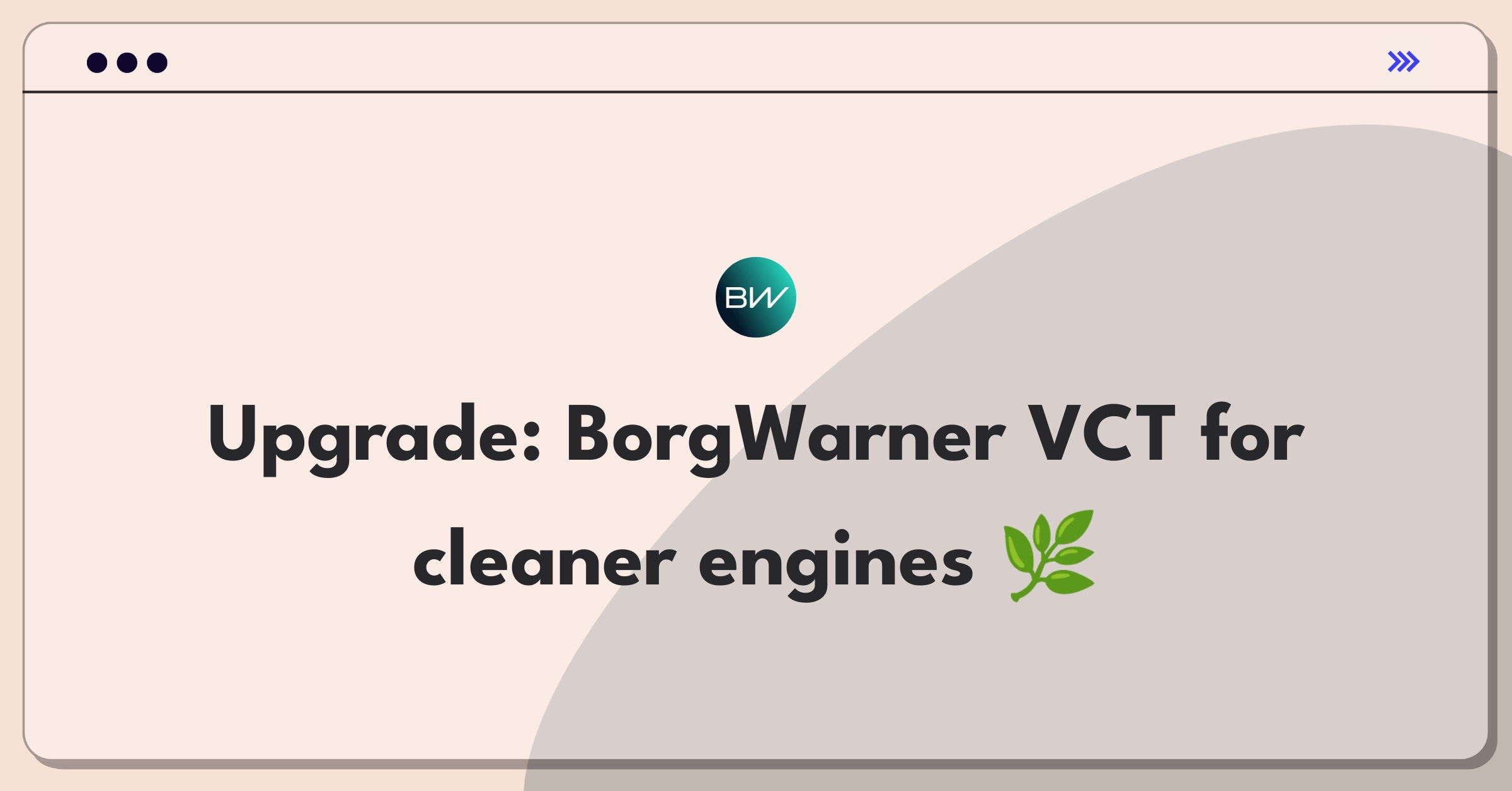Introduction
As we explore how BorgWarner can optimize its variable cam timing (VCT) systems to reduce emissions in gasoline engines, we're addressing a critical challenge in the automotive industry. VCT systems play a crucial role in engine efficiency and emissions control, and improving them could significantly impact environmental sustainability and regulatory compliance. I'll approach this problem by analyzing key stakeholders, identifying pain points, generating innovative solutions, and proposing a strategic implementation plan.
Step 1
Clarifying Questions (5 mins)
Why it matters: This helps us set clear, measurable goals for our optimization efforts. Expected answer: Current emissions are X g/km, aiming for a 20% reduction. Impact on approach: Would determine the aggressiveness of our optimization strategy.
Why it matters: Different vehicle types have varying emission requirements and usage patterns. Expected answer: Primarily focusing on passenger cars in the mid-size segment. Impact on approach: Would influence the design constraints and performance targets.
Why it matters: Determines the scope and potential for innovation in our approach. Expected answer: The current system is well-established but facing increasing pressure from stricter emissions standards. Impact on approach: Would balance between leveraging existing technology and exploring new designs.
Why it matters: Ensures our solution aligns with the company's long-term vision and resources. Expected answer: It's a key part of BorgWarner's commitment to reducing vehicle emissions by X% by 2030. Impact on approach: Would influence the prioritization of certain optimization strategies over others.
Tip
At this point, you can ask interviewer to take a 1-minute break to organize your thoughts before diving into the next step.
Subscribe to access the full answer
Monthly Plan
The perfect plan for PMs who are in the final leg of their interview preparation
$99.00 /month
- Access to 8,000+ PM Questions
- 10 AI resume reviews credits
- Access to company guides
- Basic email support
- Access to community Q&A
Yearly Plan
The ultimate plan for aspiring PMs, SPMs and those preparing for big-tech
- Everything in monthly plan
- Priority queue for AI resume review
- Monthly/Weekly newsletters
- Access to premium features
- Priority response to requested question


.png)